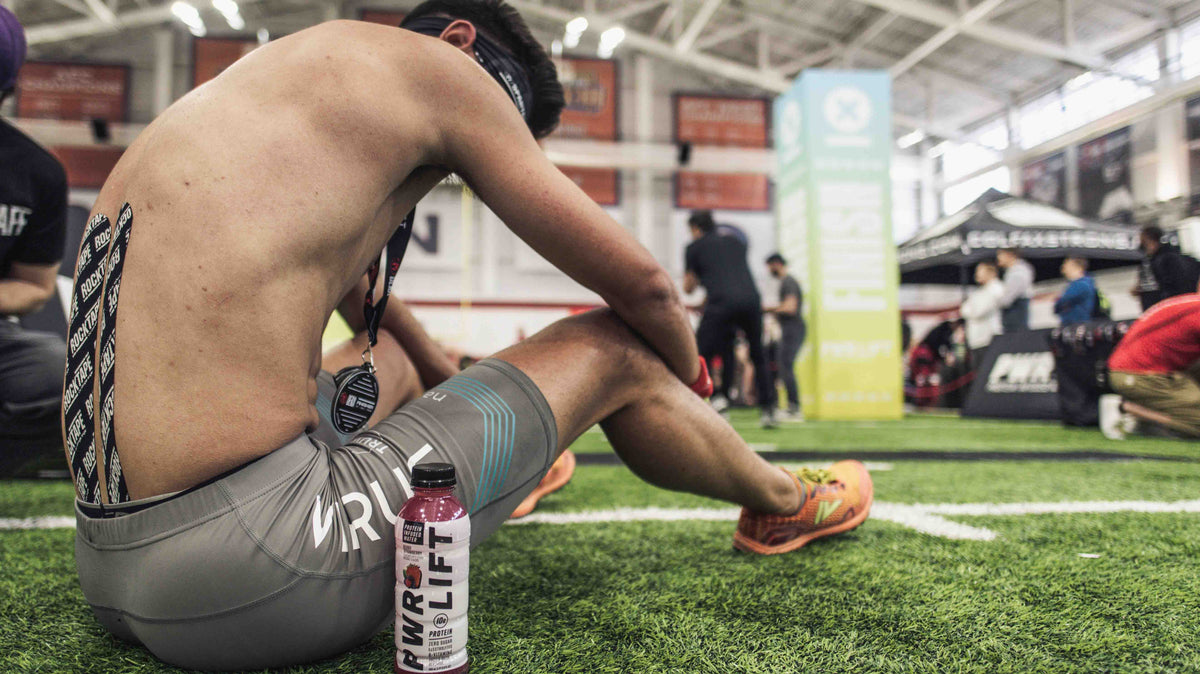4 Critical Nutrition Tips That Every Endurance Athlete Needs to Follow

Endurance athletes train at an incredibly high intensity level, so their nutrition needs will be greater than the average athlete or active individual.
“Endurance athletes do a specific physical exercise for a prolonged period of time and require a multi-faceted training approach, which will include strength, cardio, circuit and interval training, plyometrics, and mobility work,” dietitian Trista Best, MPH, RD, LD, says.
The key components that nutritionally differentiate endurance athletes from other athletes are the former's preferential use of glycogen stores for fuel during a workout. Endurance athletes also rely on protein for muscle building and repair post-training and throughout the rest of the day, and they lose a large amount of electrolytes through sweat during training.
Related: 5 Perfect Lunches for Fueling Tough Weekly Training Sessions
And if those niche nutrition needs aren’t met, that lack of energy and nutrients will cause training efforts and performance to decrease, as athletes won’t have as much endurance to power through to the end.
Here are five essential nutrition tips that all endurance athletes should adhere to in order to make the most of their workouts, as well as strengthen and build more muscle.
4 Critical Pointers on Nutrition for Endurance Athletes
1. Eat Enough Protein Throughout the Day
“Because endurance athletes often go for longer periods of time and take part in more strenuous physical activity, they may require between 1.2 and 1.4 grams of protein per kilogram of bodyweight a day," Best explains. "A regular athlete or active person may meet their needs at around 0.8 and 1.2 grams, respectively, of protein per kilogram of bodyweight."
While sufficient protein intake is critical for everyone, it’s especially important for endurance athletes, who need more protein than the average person living a more sedentary lifestyle (those who work a desk job, for example).
Related: How to Unleash Your Inner Spartan If You Work at a Desk All Day
“Endurance athletes require daily replenishment of amino acids for rebuilding of muscles that are damaged due to training,” Best says.
The dietitian suggests spreading protein intake throughout the day with meals and snacks rather than consuming it all at once. However, protein fueling post-training is one of the most important times to really make sure you’re eating enough.
If you don’t have time to grab something to eat after an endurance training session, sipping on a beverage with protein is a simple way to get an immediate source straight to your muscles to replenish depleted stores.
2. Water Can’t Hydrate Alone — Electrolytes are Necessary, too
“Electrolytes are essential to prevent muscle fatigue and dehydration during training in order to stabilize endurance and enhance performance," Best says. "It’s important to ensure these levels are adequately filled before a competition, as well as restored after."
If your electrolytes are low before an endurance workout or obstacle course race, you may experience muscle weakness, fatigue, and even cramping. These side effects of low electrolyte supply can drain your energy really fast.
Related: 4 Reasons Your Muscles Cramp Up (and What to Do About It)
Electrolytes include magnesium, calcium, potassium, sodium, and chloride, and it’s important to refill your supply throughout the day to best maintain stable endurance and energy levels.
A pre-workout banana is an excellent source, as it has potassium and magnesium. Pair it with a little table salt (your body needs sodium to avoid dehydration mid-workout), and/or a low-sugar sports drink, such as PWR LIFT, to meet your body’s needs for those longer, high-intensity workouts.
3. Don’t Restrict Carbohydrates Before a Workout or Competition
Glycogen is the body's primary source of fuel. If your stores dip too low before an endurance race, your performance will suffer.
“This requires a few days of eating more carbs than usual to increase your body's natural stores,” Best explains.
In the days leading up to your race, these carb sources should come from healthy, high-quality foods and complex carbohydrate foods containing fiber, such as whole grains, potatoes and sweet potatoes, berries, kiwi, beans, and legumes. But in the final day and hours before your race, cut your fiber intake to avoid gastrointestinal discomfort on the course.
4. Fueling Mid-Workout Can Help to Boost Endurance Levels
Post-workout recovery is pretty much a universal requirement for anybody who has just completed a tough training session.
Recovering with protein, electrolytes, and other essential vitamins and minerals is necessary for muscle repair and growth. If you fuel within 30 minutes to an hour of training (which is ideal), it’ll positively impact your performance for future workouts.
Related: Are These the 7 Hardest Endurance Events in the World?
However, endurance athletes may need a boost mid-training, whereas the average athlete or active person may not.
“It is important to replenish the electrolytes and glycogen that are lost as you train or power through a competition,” Best says.
Hydration packs and gels or protein water, such as PWR LIFT, all provide carbs and electrolytes to keep you going.





